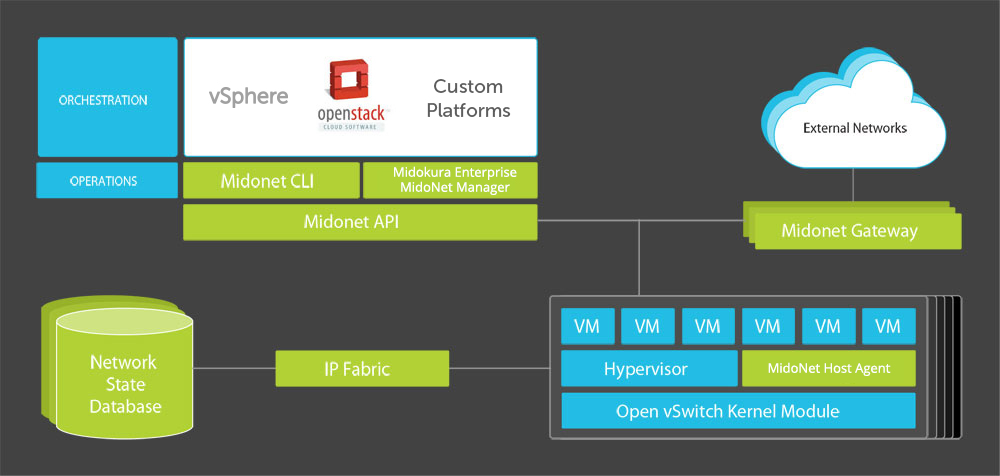Network virtualization specialist Midokura today announced it has raised a $20 million Series B round with participation from Japanese fintech company Simplex and existing investors like Allen Miner and the Innovation Network Corporation of Japan. With this round, Midokura’s total funding has now hit $44 million.
As enterprises move away from expensive proprietary networking hardware in favor of network virtualization and software-defined networking, Midokura offers a number of services that allow them to make this switch. The company’s efforts mostly focus on the open source OpenStack platform (which you can think of as an open source version of AWS that enterprises can run in their own datacenters). Midokura, like many similar players in this ecosystem, offers both an open source and an enterprise version of its core tools. The paid version, which costs $1,899 per host, includes enterprise support, as well as support for technologies like VMware’s vSphere and the ESXi hypervisor.
The company’s customers include the likes of Dell, Blue Jeans Networks, Overstock.com and Puppet.
As Midokura CEO and co-founder Dan Dumitriu noted when I talked to him earlier this week, the company had barely gone to market when it raised its last funding round in 2014. “Last year, we were able to prove to our investors that there is a market and that we are able to capture a reasonable amount of it,” Dumitriu said.
While the company started with a focus on OpenStack, Midokura will use the new funding to capture more of the container market, too, starting with support for the Kubernetes container management platform. That will put it in competition with a number of players there, too, but Dumitriu argues that Midokura’s platform has the advantage of supporting other technologies like OpenStack and VMware as well — and that most enterprises don’t just run on a single platform.
As for the new funding round, Dumitriu told me that the current funding environment is definitely making it harder to raise money, so this round came mostly from insiders. This explains why the investors mostly hail from Japan, too, but Dumitriu noted that his company’s strategic partnership with Fujitsu will hopefully help it capture more of the Asian market.
He did acknowledge, though, that the Japanese market is moving slower than the North American market. Indeed, he noted that the market for software-defined networking may end up growing slower than anticipated (while still reaching the same goal — only maybe a few years later than expected) and that’s what led him to raise now and plan to spend the new funding rather conservatively. The company doesn’t plan to significantly expand its headcount from the 50 employees it currently has, for example.

